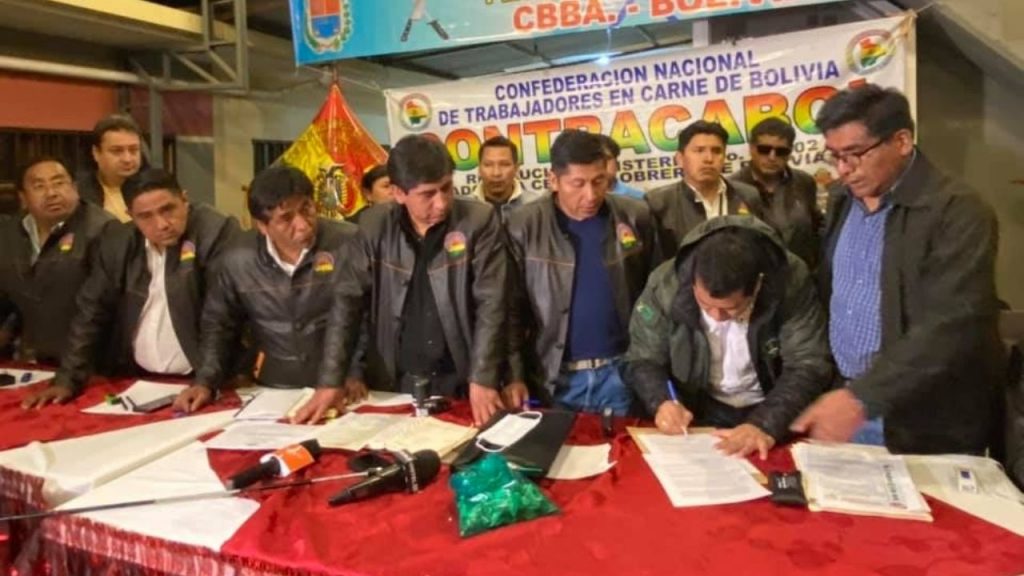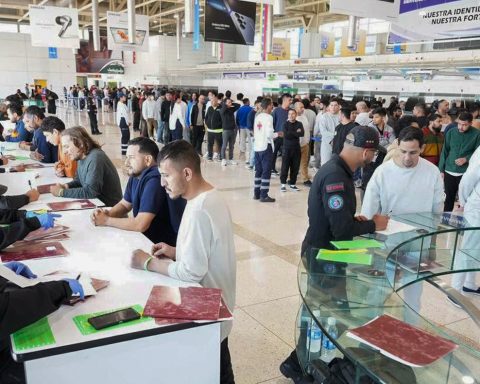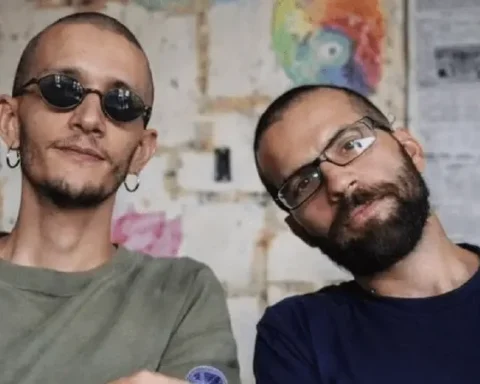
A report issued by the Office of the Comptroller General of the Republic (Special Investigation n.989, of 2019), of January 14, 2021, presented the result of an investigation requested as a result of an anonymous complaint about irregularities in the hiring of the international auditor Ernst & Young (EY), carried out via direct contact by the then Undersecretary of Justice, Juan José Ossa, today Minister of the General Secretariat of the Presidency (Segpres). The document accuses the lack of probity of the executive director of the consulting firm EY, Jorge Vio Niemeyer, since at the time the contract was awarded he was also a counselor of the General Government Internal Audit Council (CAIGG), a strategic government agency for the State. due to the high degree of confidential information that it handles.
The study commissioned to the aforementioned company by Juan José Ossa, when he was in Justice, with an evident conflict of interest, was neither more nor less than that of carrying out an “Analysis, Special Review, and Generation of a Risk Plan for Strategic Processes in the National Service for Minors (Sename) and the Chilean Gendarmerie. “The big problem is that the double function that Vio Niemeyer fulfilled, and the approval of La Moneda, set off the alarms of his peers within the CAIGG, who, upon seeing that no action was taken on the matter, they decided to make the report of the comptroller public, accusing “deeply regretting that the conflict of interest and the lack of probity reach the highest internal audit body of the government (CAIGG).”
It should be noted that the General Government Internal Audit Council is the only body that consolidates, at the Central Administration level, financial and operational information of a strategic nature, as a result of the transparency and austerity requirements of the Budget Directorate (Dipres) . In this way, public services report detailed information to the CAIGG on a quarterly basis on accounts payable, licenses to be recovered, accounting balances, bank reconciliations, among others, so any type of “noise” in terms of probity should be of “extreme concern ”, Mainly due to the sensitivity of the information that is handled inside and the public interest that it carries, indicated the sources consulted.
Its function consists of permanently developing technical coordination of the activity of the internal audit units of the Public Services dependent or related to the Executive, supporting the generation and maintenance of adequate control environments, preparing technical documentation, providing general guidance and advice on matters of internal audit, internal control and administrative integrity, and carry out permanent monitoring of the control objectives defined at each level of the Administration.
In the main, the Comptroller’s report concluded that Jorge Vio Niemeyer – who currently acts as a leading partner in the forensic and integrity services area of the EY consulting firm – participated directly in the services provided by the same company to the Undersecretariat of Justice, which would potentially affect the exercise of his then function also as a director of the CAIGG.
This is due to the fact that the CAIGG is in charge of the technical supervision of the internal audit services, in this case, of the same undersecretary that hired them. In particular – and as the sources consulted stated – “it directs the process of generating risk matrices of the services subject to its control, an aspect that is linked to the object of the contract in question, for which reason it had to abstain of being part of the work team that developed the consultancy, as well as having participated in the meetings held between the consultancy in which he works for a remunerated way and the aforementioned State portfolio ”.
In the same document, Jorge Vio is considered –according to CGR opinions– as an “authority” in his role as advisor to the General Government Internal Audit Council, with each and every one of the provisions on administrative probity being applicable to him, and in particular , the aforementioned duty of abstention, which he did not do in the consulting service provided. All this, under the consent and knowledge of La Moneda.
Moreover, Vio Niemeyer is not only the main partner of the consulting firm hired by Ossa, but he was also the auditor general of the Government (executive secretary of the CAIGG) in the first Government of Sebastián Piñera – period 2011-2014 – and, later, a director in the same body in the 2018-2020 period, the second term of President Piñera. According to what was recorded, this personero would only have resigned from the position of counselor after the investigation began, in January 2020, but –as he was able to verify The counter in documents – the acceptance of his resignation (by means of a Supreme Decree) only occurred one year later (January 2021), which increased “the perception of open corruption” within the strategic Council of the State administration.
Disgruntled, from La Moneda they assured that, once he submitted his resignation, he would never again have officiated in his role as an advisor.
The primary motivation of those who decided to make the document public was –in their words– that “potentially, the EY consultancy would be interested in obtaining financial and operational information from State entities, at an individual and aggregate level. This information is very important to generate future business in the public and private sector ”.
Also, in the CGR report, the Undersecretariat of Justice was requested to initiate a summary process to determine the possible administrative responsibilities of the officials involved in the events described. Specifically, it is pointed out that said undersecretary did not accredit the concurrence of the circumstances that prove that the EY consultancy had the special powers that would allow it to be assigned the acquisition by direct treatment, the exclusive political responsibility of Juan José Ossa, current Minister Secretary General of the Presidency.
In this way –added the consulted sources–, the provisions of article 49 of the aforementioned decree No. 250 of 2004 would have been contravened, and which provides that only when the causes established in the Procurement Law or in article 10 of said regulations, entities must authorize the Direct Deal or Contract, through a well-founded resolution. On the occasion, it was the Ministry of Justice and Human Rights, headed by Minister Hernán Larraín, who gave the go to action ordered by the undersecretary.
Ernst & Young, now also known as EY, is a multinational company and one of the most important professional services firms in the world –according to various biographies and testimonies who know their work closely– and that include auditing, taxes, finance, accounting, legal advice, calculation services and actuarial studies and advice on company management.
The multinational is part of the calls Big four, the world’s four largest consulting and auditing companies, along with PricewaterhouseCoopers, Deloitte and KPMG. According to the magazine ForbesAt the end of 2013, due to its size, it was the tenth largest private company in the United States.
In the document issued by the controlling entity, it was also found that the ministerial auditor of the Justice and Human Rights portfolio, Dan Muñoz Silva – who at the time was designated as the technical counterpart of the consulting contract under review – did not abstain from to know this matter, a situation that should have occurred according to the CGR, since it was technically related to the CAIGG and, therefore, its independence and impartiality could be affected.
At the time of the investigation carried out by the Comptroller’s Office, the “vulnerability” of the control system in this area was revealed, given that there was no Regulation for the CAIGG, so the criteria to determine the directors and directors were completely discretionary. without delimiting the prohibited conducts for said directors during the exercise of their functions. The sanctions were not regulated either. In this way, those who know about the work of the state institutions, notice that in no way does this lack of control imply justification, but quite the opposite, since it makes clear the “evident lack of probity”.
Another important fact included in the CGR report corresponds to the failure to issue the Regulations by the General Government Internal Audit Council (CAIGG).
Regarding why at the time of Ossa it was decided to do the business by direct dealings, from the Segpres – which he currently directs – they pointed out that, if a previous bid was made, the object of the contracted audit would be known by many people, which it could have given rise to possible illicit or bad practices being hidden when it was known that there would be a consultancy in those services. To this they added that the reasons that were given were considered, by themselves, as sufficient to configure the aforementioned cause, taking refuge in the fact that the CGR itself, despite not having shown agreement, would not have formulated any sanction.
Regarding why Ernst & Young was chosen and not another, being that the Comptroller’s Office pointed out that the Undersecretariat of Justice at the time did not accredit the concurrence of the circumstances that prove that the EY consultancy had the special powers that would allow it to be assigned the acquisition by Direct treatment, from the same distribution they argued that it was chosen because, as far as they knew, it was the only company that had modern tools in massive data analysis and information cross-checking, adding that the consultancy had a forensic focus, aimed at identifying possible fraud in those services.
EY’s “men” in government
The conflict of interest between the public and private world has been the subject of constant debate since the return to democracy, and several pages have been written regarding how the industry, in its various branches, removes and returns officials from the Government of the day, In order to buy networks, influence, but, above all, information that is not so easily accessed from the outside.
In this case, between the two governments of Sebastián Piñera and the international Ernst & Young, there is a series of comings and goings, this with the addition that it is the institution of the President of the Republic that is in charge of the appointment of the members of the CAIGG.
So much so that –beyond the case of Jorge Vio– the current Government Auditor General, Eugenio Rebolledo Suazo, and as mentioned in his resume, also participated as a senior lawyer in the EY consultancy. Rebolledo Suazo – according to sources familiar with his day-to-day work – is close to Vio Niemeyer, and it would have been the latter who recommended him for the current position he holds.
In the case of José Monsalve Assef, current director of the CAIGG (he was also in the period 2011-2014), he was also a leading partner of Ernst & Young, and who recommended Vio Niemeyer, after passing through Piñera’s first term. , so that it can be integrated into the government and public sector of the consulting firm in question.
Saw Niemeyer, once he left the Executive in his first stay, he immediately landed on EY. With him he took Rolando Muñoz Villa and Ignacio Valenzuela from the government entity. The latter was part of the work commissioned by the Undersecretariat of Justice, as stated by the Comptroller’s Office.
Once the second administration of President Sebastián Piñera began, and with Jorge Vio Niemeyer as CAIGG advisor, Muñoz Villa also returns from the consulting firm, assuming the position of general coordinator of the instance.
With all this, they closed the circle.

















